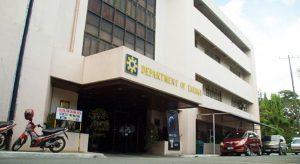PRESIDENT Ferdinand R. Marcos, Jr. said the Department of Energy’s (DoE) method of expediting power project approvals can be fine-tuned further by resorting to simultaneous permit processing, avoiding the waiting time caused by sequential approvals.
Mr. Marcos made the remarks at a Palace meeting about the DoE’s Energy Virtual One-Stop Shop (EVOSS), according to the Presidential Communications Office.
“Well, you continue to work on the permitting process,” he told DoE officials. “So, we try to get as close as possible to the simultaneous processing.”
In his third address to Congress, the President ordered the DoE to entrust to a digital one-stop shop its permit approval process for power projects.
As of Sept. 27, the DoE reported that at least 56 of 103 energy-related processes had been folded into EVOSS, which was rolled out in 2020.
The government is aiming for 100% integration of all energy-related application processes into EVOSS by June 2028.
At a Cabinet meeting, Mr. Marcos also told Energy Secretary Raphael P.M. Lotilla to inform agencies in advance about the DoE’s impending endorsement of a project to allow them to start their own permitting process right away.
The Energy Regulatory Commission said last year that EVOSS would cut the processing time for quasi-judicial rulings to 270 calendar days from more than a year previously.
Last week, the DoE said it has issued endorsements to eight renewable energy (RE) projects and one battery energy storage system.
The Board of Investments on Sept. 26 said it had endorsed P3.74 trillion worth of RE projects for green-lane treatment as of Sept. 25. The investment promotion agency said 114 RE projects had been endorsed to the One-Stop Action Center for Strategic Investments since February 2023.
The Philippines is trying to boost the share of RE in the energy mix to 35% from the current 22%, eventually rising to 50% by 2040.
Energy Undersecretary Sharon S. Garin has said battery technology is evolving fast enough for the Philippines to meet its RE targets. She said the agency was looking to attract more battery system companies to introduce their systems in the Philippines, which will help RE projects overcome the intermittent nature of their power sources. — John Victor D. Ordoñez


















